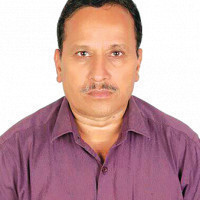- Tuesday, 17 February 2026
Don't Turn Clock Back
Parmeshwar Devkota
Medical entrepreneur Durga Parsai's Kathmandu-centric movement for the revival of monarchy has made the headlines. To counter it, Mahesh Basnet, leader of the youth wing of the main opposition CPN-UML, also organised a mass gathering. As they began flexing muscles in favour of and against monarchy and traded barbs against each other, the capital's denizens had an uneasy feeling whether a bigger conflict was taking place in the time of normalcy.
But, such fear turned out groundless. In the past, scores of political theories came into existence but only reasonable and practical political principles are in vogue and obsolete ones have been dumped in the dustbin of history. Today concepts of democracy, republicanism, federalism, communism and socialism have gained ground in one way or the other. On the other hand, the political system based on dictatorship, imperialism, monarchy, plutocracy and conservatism and some other forms of political principle are in question though some of them are practiced in a few nations.
The cause of decline of those political theories is that they are not modified as per wish of the people and need of the time. The modern day people yearn for freedom, security and brighter future, among other things. If people are deprived of these things, they start revolting against the existing political system. It applies to our context, too. As Rana oligarchy stood as an obstacle to our freedom, Nepali people revolted against it and established multiparty democracy. Likewise, a dictatorial monarchy failed to feel the wind of change, the Nepali people overthrew it through peaceful uprising.
But, as a snake wages tails for a moment in its dying moment, the vestige of abolished monarchy with a handful of its supporter claim that it was eradicated without following a due procedures and people were not allowed to choose between monarchy and republican system. So, Durga Parsai has launched a pro-monarchy campaign to test its popularity in the crucial time when the state is facing economic crisis due to internal and external factors, and the federal government is confronting multiple challenges to live up to public expectations.
The gathering at Balkhu the other day was the jamboree of conservative forces of different hues led by Parsai. He was expected to put up his views at length but to the dismay of attending followers, he gave a short detestable speech and disappeared from the scene. Neither the prominent leaders supporting monarchy addressed the gathering. On the other hand, the scene of Tinkune was different. UML leader Basnet stood firm and expressed his position clearly. He also warned against the conservative forces and vowed to fight for republicanism and federalism.
Interestingly, Rastriya Pajatantra Party chairman Rajendra Lingden, organising a press briefing, clarified his position on the issue. Linden is known for balanced views on the contemporary issues.
The weak mass mobilisation of royalists and comments on it in the social media amply suggest that the people are not inclined to back the monarchy. It is better to feel the pulse of time and move accordingly instead of trying to turn back the clock.










-original-thumb.jpg)

